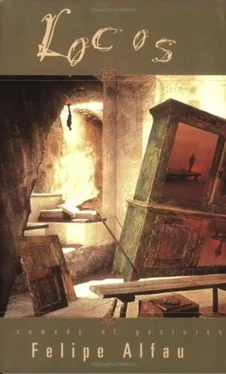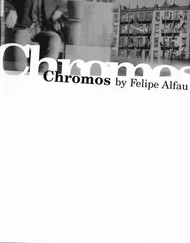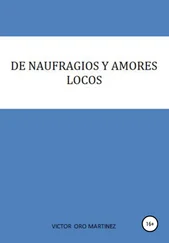“Yes, Pepe, yes. I should like to write an official letter to that gentleman, to that great man — Cherlomsky, is that the name?”
“Sherlock Holmes,” Pepe corrected.
“Well, I should like to write to him a letter telling that he should be proud of his pupil, that. ”
“Oh, don’t bother about that. What I have done is nothing. If I were to tell you about some of the cases I handled in England. ”
The door opened and the boy who had brought the batch of letters entered and deposited a package before the Prefect.
Don Benito looked at the package and handed it to Pepe:
“It is for you, it was sent to my care.”
Pepe opened the package. It contained a wallet which he recognized as his own. On top of the wallet there was a note written on stationery from the Café El Diamante.
The note said:
DEAR PEPE:
Sorry to have taken your wallet. I assure you it was a mistake and I am returning it to you. I do not know your address and am sending it to Uncle Benito who will give it to you. I hope you like Spain. You must have found it very changed since you left. Forgive me again. Good luck to you and if you are not too proud to accept it, receive a great embrace from your loving brother,
GASTON
P.S. — If you ever need anything do not hesitate to come to me. You can always find me through the owner of El Diamante.
Again Pepe felt the same tremor in his throat and the same oppression on his solar plexus. This time for different causes than earlier that morning.
“What a country, Spain!” he thought. “Twice in a single morning and due to the most diametrically opposed stimulants my sympathetic system has responded. Twice this morning the human has been brought out in me by this emotional land. The thing has been aroused in me which starts us living and makes us want to keep on going.” And Pepe folded the note inside his wallet and put it in his pocket.
“Well, uncle, shall we have lunch together? I suppose you feel happier now. I also feel quite happy.”
“Let me rest a bit, my boy. I have had too much lately.” And the Prefect sank in his chair but came up again slowly with pain reflected in his features. He was terribly sore still.
There are individuals whose life is so full of adventure and action that it seems to be elastic in order to hold so many incidents without bursting; incidents which in themselves would suffice to fill the lives of many; incidents, many of which have often a secondhand romantic flavor belonging to a past, ready-made age.
Such was the case of a certain person who once lived in the suburbs of Madrid, in the street of Ayala, to be more exact.
At ten o’clock in the morning there was his landau standing before his house with a coachman and lackey dressed in irreproachable livery. Then he came out with an exaggerated dignity and slowness. Usually with a top hat, a light tan summer coat, which did not conceal the lower half of check trousers, and holding a cane with an ivory handle.
This was a regular ritual. The lackey opened the garden gate for him and then the landau door into which the master thrust his majestic personality.
And then, his constant audience for the summer (no one in the group could have been more than six or seven years old) stood in a bunch at a respectable distance and suddenly burst out in a chorus:
Alto, gordo y chato,
Juan Chinelato;
tira los garbanzos y se come al gato.
Then he would look at them with obvious annoyance, and mumble in his mustache some sentence in a language they did not understand.
But even if this unfailing reaction to an individual who emanated cosmopolitanism to such a degree lent those silent suburban streets the decided aspect of a second-rate village, such a reaction, as well as the little song, was well justified by the extraordinary person who had happened like a discordant note or a meteor in those curious incipient lives.
Juan Chinelato, or at least the gentleman who was addressed by that name, which visibly annoyed him, had rented the house in the suburbs of Madrid. As a matter of fact, he was officially known as Señor Olózaga and I don’t know who invented or discovered the other name. I don’t even remember how the children learned the little song which was their salutation to him whenever he hove in sight.
However, Juan Chinelato, or Señor Olózaga, was a giant. He was tall, his shoulders were phenomenally broad. In short, his whole frame was big, square and massive like that of an athlete. Then his face, too, was worthy of notice. His features were flat, his chin strong, his cold eyes pronouncedly oblique, and at that time his hair was still black, both on his head and in his drooping mustache. There was a strong suggestion of the Oriental in him which contrasted excessively with his European attire. He might have been taken for a Chinaman had it not been for his deep olive complexion. I mean olive in the literal sense, not the olive color with which we Spaniards are described, but the real color of the olive which marked this man as the type of the Malay.
Some people who had seen the inside of his house said that it was luxuriously furnished in an exotic and bizarre style, and others had seen him come out on to the balcony clad in a colorful robe and smoking a long pipe.
It was said that all by himself he could dispose of a whole roasted pig and a barrel of rum, that he was a bigamist and that his other wives had disappeared in a mysterious manner. In fact, he aroused the curiosity of the whole neighborhood and the most fantastic tales were told about him. Of course, he was not Spanish and undoubtedly the blood of all races was mixed in his veins to produce a strange and dangerous character.
All these things were more than sufficient to appeal to the imagination of children and arouse their interest and gossip, not to mention that of the grownups, and during that summer the whole neighborhood was in a fever. This individual frightened and attracted everyone, he often must have appeared in the dreams of many, sometimes like a black ogre, sometimes like a Chinese dragon, always spitting fire and devouring children.
All this, imagination invented or discovered about the person of Señor Olózaga, an eccentric and exotic gentleman who wore a colorful robe at home, smoked a long pipe sometimes, had rented a house for the summer in the suburbs of Madrid, and every morning left in his carriage and rode to the center of the city leaving behind a group of bewildered children singing in chorus:
Alto, gordo y chato,
Juan Chinelato;
tira los garbanzos y se come al gato.
The Mission
Señor Olózaga is very fond of speaking of himself. Indeed, his life is a wonderful subject of conversation. But I am always under the impression that he keeps to himself a great deal which he leaves unsaid, and that at other times he changes the names of people and places. Much of what I know about his life I owe to him, but I also owe as much to people who have known him at different periods.
His opinion of himself and the opinion that other people have of him are at times quite diametrically opposed. While he insists that in his veins runs the blood of remote dynasties and legendary princes, other people insist that he is a common adventurer who comes from low colonial stock of pariahs and God knows what. But I say that he may be an adventurer, but not at all common. I really don’t know what his race or races may be, but I know that he is a Spanish citizen and travels under such a passport. I am under the impression that he has as many enemies as he has friends and he can make friends easily. I believe that many envy him his innate ability to make a success of his life, that he can show pictures in which he appears with the royalty and high lights of Europe, that he speaks almost every language in existence fluently, that he lives like a prince and spends a tremendous amount of money. He is much of a showman and slightly cynical, but on the whole he is a jolly good fellow.
Читать дальше












